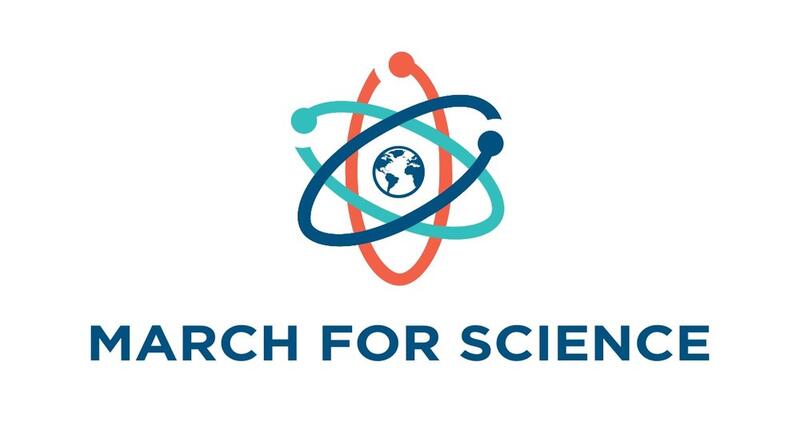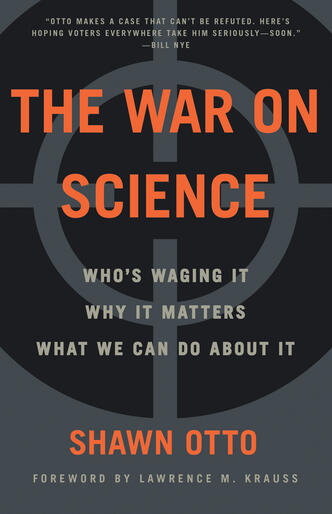The March for Science is a March for Democracy

The upcoming March for Science is in many ways a March for Democracy, and if you like freedom and equality, or at least what’s left of them, you should march in support of science.
That’s because science is the foundation of democracy. The ideas of science were critical to America’s founders’ battles to beat back the authoritarianism of King George. Benjamin Franklin was a scientist. Thomas Jefferson was a scientist and lawyer. Benjamin Rush was a scientist and physician. George Washington stressed the importance of science in the first State of the Union address.
This is because for freedom to survive, it has to be based on the idea that there is such a thing a objective reality that we can all turn to to settle arguments of fact. And what creates that objective reality? Evidence from science. Without it, we are left with arguments being won by the person with the biggest stick, the fattest wallet, the most violent mob, or the most ardent religious followers. Given how these authoritarian alternatives played out over the centuries, the idea of a democracy based on science seemed pretty good to our nation’s founders, and it should to us too.
In 1776, when Jefferson was writing the Declaration of Independence, he turned to his three idols—the scientists Isaac Newton, Francis Bacon, and John Locke. He synthesized their thinking into a simple but compelling argument: that if anyone could discover the truth of something for him or herself using the tools of reason and science, then all are created equal, and no king, no pope, and no wealthy lord had any more right to govern than the people themselves. It was self-evident.
In turn, attacks on science weaken the foundation of the notion of a shared objective reality on which democracy depends to function. And that’s exactly what is happening in politics today. As attacks by ideologues and industry have been broadcast by a news media trained that there is no such thing as objectivity, we have become paralyzed and our government is at risk of failing. Massive anti-science public relations campaigns whose sole purpose is to forestall or reverse evidence-based legislation their funders don’t like have the side effect of undermining the public requirement that politicians stick to the facts.
The public relations strategy has seven distinct steps to create “uncertainties” and manipulate the media; they are used in every industry where this happens: tobacco, fossil fuels, pesticides, sugar, mining, and others. It goes like this:
- Fund and create fake science that uses cherry-picking, p-hacking, and other statistical tricks to create a counter narrative that can form a basis for creating public uncertainties about the real science, then publish it in fake journals, which is easy to do online.
- Direct slanted press materials to bloggers whose websites pay them per click and encourage them to attack the integrity, conclusions and motives of the respected scientists in the field; use the attacks and blog posts to drive the manufactured controversy into the mainstream press.
- Fund and create industry-aligned front-groups to “whip up grassroots anger and frustration” about the “controversy” and the limits to freedom the real scientists’ findings will supposedly cause; then hold demonstrations and publicity events.
- Hire contrarian scientists to proselytize about the “uncertainties” of the legitimate science to professionals and influencers in the local communities of the member of Congress you are trying to influence, and to appear in committee hearings on the topic.
- Once in the press, push the story by placing opinion pieces in papers and booking advocates on television shows to discuss the “controversy.”
- Work with sympathetic legislators to craft bills that address the “problem,” limiting or rolling back regulations and legislation based on the evidence because of the appearance of a controversy, and arguing that any action is premature.
- At this point, representatives of the “innocent” corporations that have been funding the attacks can safely step out from behind the curtain and testify on the bill, showing how its adoption would cost American jobs and reduce freedom.
This method has been used so successfully for so long that science has come to be viewed by many political leaders as just another special interest or ideological view, which can be regarded as partisan and dismissed. We hear cries of how liberal scientists with a socialist agenda want to control your life and limit your freedom. Why should we fund science at all? is the logical conclusion of such a train of thought, and so we are now seeing drastic, historic cuts proposed.
Two things bear remembering: Science is never partisan. Its very method is designed to cull what we know away from our many biases. But science is always political. Science creates knowledge. Knowledge is power, and that power either confirms or challenges somebody’s vested interests, which is always a political act. And there’s the rub.
But the dangers of denial are immense. In Germany in 1920, deniers of the theory of relativity mounted ad hominem attacks against Albert Einstein, branding general relativity as a “hoax,” and denouncing its Jewish nature. “This world is a strange madhouse,” Einstein wrote a friend at the time. “Currently every coachman and every waiter is debating whether relativity theory is correct. Belief in this matter depends on political party affiliation.”
Something similar happened in China during the Cultural Revolution. It happened in the Roman Empire, the Ottoman Empire, Renaissance Italy, twentieth-century Russia, and Nazi Germany—all of them societies whose leaders denied science and evidence in favor of authoritarian ideology, and the societies collapsed.
Everything you take for granted about life is at risk when those in power are allowed to deny evidence or muzzle truth tellers. If you care about these core American values, March with us on April 22.
Editor’s Note: On Saturday, thousands of scientists are set to March for Science. As Otto says in The War on Science, if you “use your life as a tool to live your values, and you may find you are coming alive for the very first time.” Learn more about the march here, and find your local march here. We’ll see you there!
Recommended Reading: If you’re looking for a longer history about how anti-science public relations strategies are waging war on evidence-based legislation and so much more, pick up The War on Science as soon as you possibly can. See more books on climate change and the environment.

